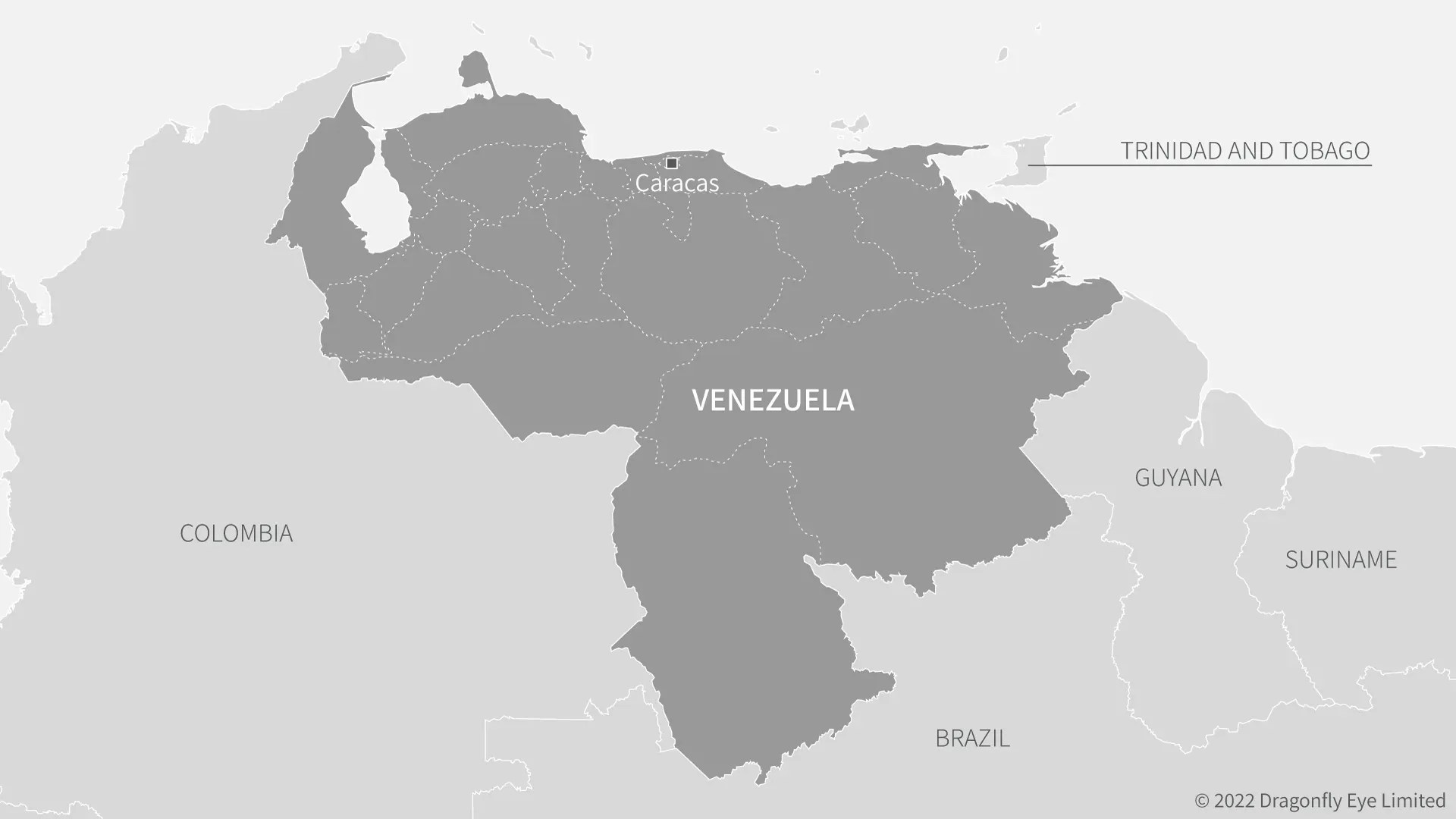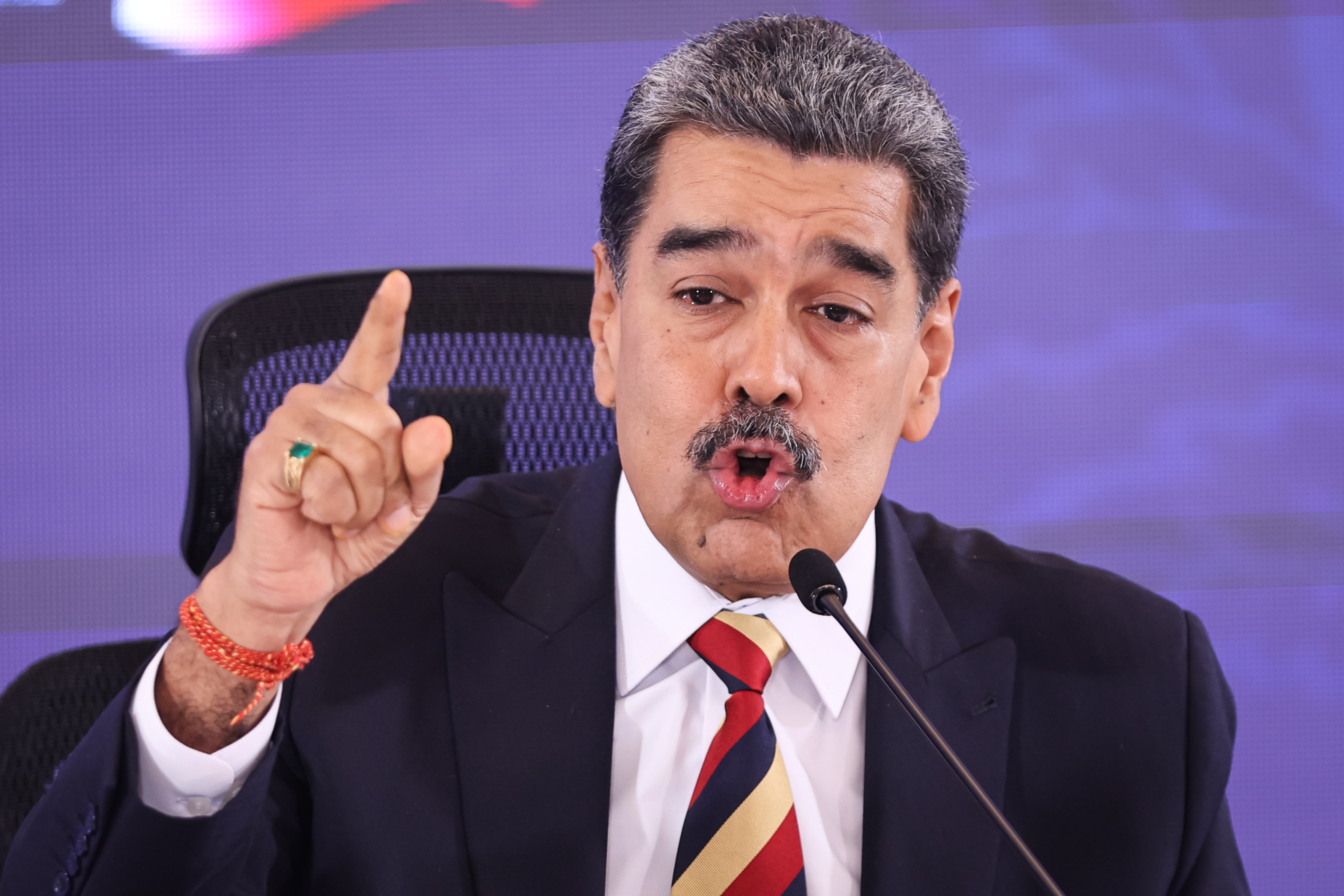
- We now assess there is a reasonable possibility of the US conducting a military strike within Venezuela in the coming weeks; we previously assessed this was unlikely
- The US has significantly increased its military presence off the coast of Venezuela, with the stated aim of tackling drug trafficking
- A US strike would probably target a drug-trafficking site in a rural area rather than a state-linked site in a major city
We assess there is now a reasonable possibility of the US conducting a military strike on Venezuelan territory. This previously appeared unlikely. President Donald Trump seems determined to ramp up pressure on President Nicolas Maduro after destroying a drug-trafficking boat near Venezuela on 2 September. In response to that attack, Maduro appears to have ordered Venezuelan fighter jets to taunt US warships. According to anonymous sources cited by CNN on 6 September, Trump is weighing a multitude of options for further military action, including a strike in Venezuela.
Rather than regime change, Trump’s main aim still seems to be forcing Maduro into a deal on oil and migrants. Washington has not publicly made any demands of Maduro; its military buildup is ostensibly focused on drug trafficking. But it has previously demanded that Maduro accept Venezuelan deportees from the US and grant it access to Venezuelan oil. The US has accused Maduro of controlling drug cartels. But Trump seems determined to force Maduro to capitulate. Given this, we assess that any military strike would probably target a drug-trafficking site rather than a military or government site.
Maduro would probably seek to de-escalate and engage Washington in negotiations if the US launched a strike in Venezuelan territory. We very much doubt Maduro would enter a military conflict with the US; the capability of Venezuela’s military pales in comparison to that of the US. Given this, we would not anticipate major political instability in Venezuela as a result of a US strike. And the opposition seems incapable of putting significant pressure on Maduro through demonstrations or otherwise.
Maduro remains bellicose for now
Maduro has appeared unmoved by America’s military posture in the Caribbean. A US strike on a drug-trafficking boat in the Caribbean on 2 September and the threat of further such action have not yet forced the Maduro government to abandon its bellicose stance towards the US. Quite the opposite. Maduro appears to have ordered Venezuelan fighter jets to taunt US warships by flying close by on 4 and 5 September. Trump, on 5 September, threatened to shoot down Venezuelan jets if they flew near US ships again.
The US nevertheless seems determined to force Maduro to agree to negotiate with it. Based on the Trump administration’s actions and statements so far this year, this would probably be over oil and migration. The White House cancelled and then reportedly restarted Chevron’s oil exports from Venezuela in July. And it has been conducting weekly flights sending deportees to Venezuela. The Trump administration seems determined to negotiate an even more favourable relationship.
Trump likely considering more direct military options
Trump now seems to be considering more direct military options to force Maduro to acquiesce. According to sources ‘briefed on the administration’s plans’ who spoke to CNN last week, Trump is ‘weighing a multitude of options for carrying out military strikes’ in Venezuela. The most obvious option would involve another strike on a drug-trafficking vessel within Venezuelan territorial waters. According to the same report, another includes ‘potentially hitting targets inside the country’.
We assess that a US strike within Venezuela would most probably target a drug-trafficking site; major cities, including Caracas, would be unlikely targets. Hitting a Venezuelan military or government site would mark a significant escalation and make negotiations with Caracas extremely difficult. Given that Trump has claimed Maduro is involved in the drug trade, striking a drug-trafficking site in Venezuela would deliver a political message to the government in Caracas.
A military strike on a drug-trafficking operation within Venezuela’s borders would also fulfil another White House objective: encouraging other regional governments to do more to address drug trafficking. Secretary of State Marco Rubio said on 4 September that there is ‘no need’ to conduct military strikes on nationals trafficking drugs from ‘cooperative’ countries.
Based on our understanding of drug-trafficking operations, the most likely location for an on-land military strike would probably be a rural drug-storage facility or airstrip in Guajira (western state of Zulia), the Paraguana peninsula (northwestern state of Falcon), Sucre (north) or along the Colombian border. Such areas have a large presence of criminal groups, and most major Western governments advise against travel there.
Indicators for a US military strike
We are monitoring several indicators that a US military strike on Venezuelan territory is becoming likely or is potentially imminent. These are as follows, in no particular order:
- The US reiterates claims that the Venezuelan government is complicit in drug trafficking, citing specific areas of the country where traffickers operate
- The Venezuelan military conduct another provocative action close to US naval vessels in the Caribbean
- The Venezuelan government says it is no longer willing to accept Venezuelan deportees from the US
- The US, other Western governments and/or regional governments reiterate their advice for US/their citizens to leave Venezuela immediately
- President Gustavo Petro of Colombia states he has rejected plans by the US to mount a military strike in Venezuela using Colombia’s assistance
- US news outlets quote US intelligence officials or White House officials that an attack against Venezuela is imminent
Trump does not seem to have decided whether he will order a strike yet. Given this, we have identified several indicators that a military strike is becoming less likely.
- The US and Venezuela announce plans to conduct talks over oil and migrants
- The Venezuelan government publicly commits to helping the US to combat drug trafficking
- International press outlets report that senior US officials are flying to Caracas to conduct talks with the government
- The US moves military assets away from the southern Caribbean
- US strike in Venezuela unlikely to lead to Maduro’s imminent downfall
Despite military posturing by both the US and Venezuela, neither seems intent on a military conflict. In the event of a US strike in Venezuela, we anticipate that Maduro would probably seek to de-escalate the situation and placate the US. The Venezuelan military appears incapable of challenging the US militarily. And Maduro has long expressed a willingness to negotiate with the US; on 5 September, Maduro said ‘we demand respect’ but ‘Venezuela is always ready for dialogue’.
A US strike on Venezuelan territory currently seems unlikely to trigger major repercussions that lead to Maduro’s downfall. We have not seen any signs of fractures among Maduro’s domestic security, military and political supporters amid high tensions with the US. In our assessment, they would probably only seek to remove him from office if they considered he was leading Venezuela towards a full-scale war with the US.
Nicolas Maduro Addresses The Media In CaracasCARACAS, VENEZUELA – SEPTEMBER 01: President of Venezuela Nicolás Maduro speaks during a press conference at Hotel Melia Caracas on September 01, 2025 in Caracas, Venezuela. Maduro stated that his government is targeted by 8 military ships and 1,200 misiles; what he called the largest threat on Venezuela in the last 100 years. (Photo by Jesus Vargas/Getty Images)




